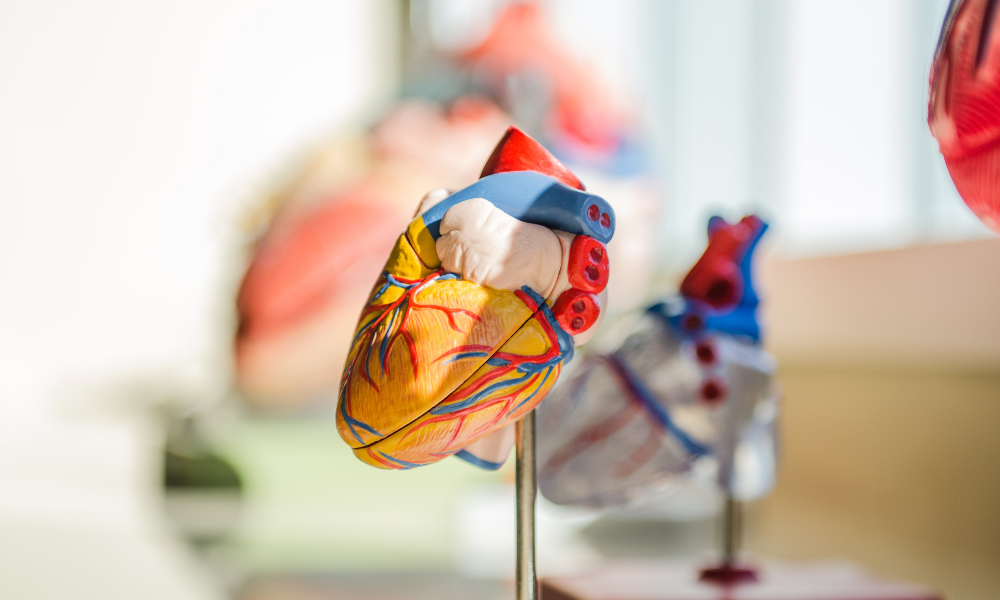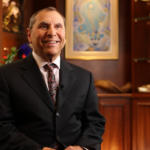Questions and answers: high blood pressure
Foundation, in collaboration with Dr. Martin Juneau, cardiologist and Director of Prevention at the Institute
Home > Blog > Questions and answers: high blood pressure
High blood pressure is the main factor of risk associated with cardiovascular diseases. Dr. Martin Juneau, cardiologist and Director of Prevention at the Montreal Heart Institute, answers your questions about high blood pressure.
What is high blood pressure?
Answer: Hypertension is another name for high blood pressure which refers to the force of blood flowing from your heart to your blood vessels. The blood exerts pressure on your artery walls.
Blood pressure is measured by two numbers:
- Systolic pressure, the top number, represents the pressure exerted when the heart contracts and pushes out blood.
- Diastolic pressure, the bottom number, is the pressure when the heart rests between two beats.
What are the causes of high blood pressure?
Answer: In most cases there is no specific cause, but genetics and poor lifestyle habits are often associated with this condition.
The following will increase your odds of suffering from high blood pressure:
- being overweight
- alcohol consumption
- tobacco consumption
- poor dietary habits, more specifically a diet high in sodium
- a sedentary lifestyle, lack of exercise
- stress
- age: the risk increases as you get older
- sex
In some cases, high blood pressure can be caused by:
- kidney disease
- hormonal disorders
- some types of medication
- sleep apnea
What are the symptoms of high blood pressure?
Answer: High blood pressure usually remains undiagnosed because there are no symptoms associated with this condition. That’s why it’s known as a “silent killer”.
However, when a person has very high blood pressure, they may experience some of the following:
- headaches
- shortness of breath
- fatigue
- nausea and vomiting
- vision problems
Can high blood pressure be treated?
Answer: If you suffer from high blood pressure, your physician will be able to determine the right treatment for your situation. They will usually prescribe a change of lifestyle habits and medication.
Changing your lifestyle habits
High blood pressure can often be kept under control with the following lifestyle changes:
- weight loss
- a low-sodium, low-fat diet with plenty of fruits, vegetables, and whole grains
- low alcohol consumption (alcohol increases blood pressure)
- physical exercise
- stress management
Medication
In addition to healthy lifestyle habits, medication can also help control high blood pressure. There are many different drugs available for this condition and your physician will know which one to recommend for your specific situation.
How can you lower the risks of high blood pressure?
Answer: Some factors are unfortunately out of your control, such as your age and sex. However, healthy lifestyle habits will decrease your odds of suffering from this disease.
What is normal blood pressure?
Answer: Normal blood pressure levels are equal or less than 120/80. High blood pressure is when you regularly exceed 135/85 (blood pressure levels taken at home). You should then contact your physician.
What are the complications associated with high blood pressure?
Answer: If uncontrolled or untreated, high blood pressure can lead to complications because it can damage some of your organs and blood vessels. The most common complications of high blood pressure are:
- strokes caused by thrombosis or hemorrhaging
- heart attack
- heart failure
- kidney failure
- hypertensive retinopathy
How can I take my own blood pressure?
Answer: Your physician should take your blood pressure during regular check-ups. You can also use public blood pressure machines located in most pharmacies.
If you are predisposed to this condition, or if you suffer from high blood pressure, you can also purchase a blood pressure monitor for use at home. It’s an affordable and easy to use device that will help you make sure your high blood pressure is under control.
Do you care about the needs of patients and want to support prevention?
donate today







